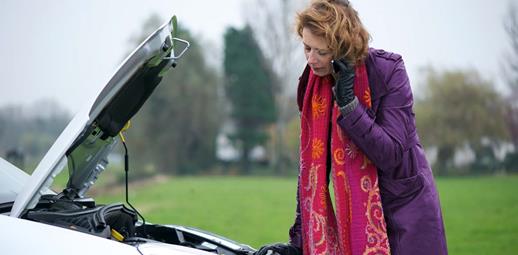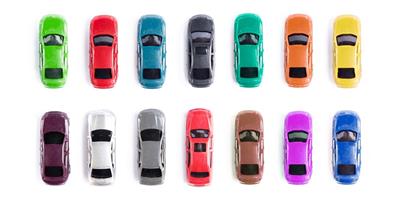
Insurance comes with a variety of jargon you might not use in everyday conversation, so we've compiled the following A-Z of car insurance terminology to keep you in the know.
Act of God
An event as a result of a natural cause where no driver is to blame, such as a lightening strike or extreme weather.
Annual mileage
The number of miles you cover in a year. When applying for a car insurance policy you'll need to give an estimated annual mileage. Records from past MoT certificates or calculating the distance and frequency of your anticipated journeys can help you in coming up with a suitable figure. If you ever realise you're going to exceed the mileage you originally stated, let your insurer know as soon as possible
Accident
An accident is an incident that causes injury to yourself or another person or damage to another car, or property such as a fence or wall. You should inform your insurance company of any accident you're involved in, even if you decide not to make a claim.
Approved repairer
Many insurers will only authorise repairs by a garage approved by them (approved repairers) so you will have to use them rather than your regular garage.
Association of British Insurers (ABI)
This is a trade association of which many UK insurance companies are members.
Certificate of motor insurance
This is an important document which provides legal evidence of your insurance. You should get it shortly after taking out your policy.
Claims
You make a claim when you ask your insurer to pay you the sum of money that is owed to you under the terms of your insurance policy.
Fault claim
A fault claim refers to an accident or incident where the policyholder is considered to be responsible or where the insurer cannot recover costs from someone else. If damage is caused to a vehicle and the person responsible cannot be traced, this is also classified as a fault claim. For example, a car park scratch received from a motorist who leaves the scene without being identified can be classified as a fault claim because the insurer cannot normally recover its costs from them.
Non-fault claim
This is when another person is to blame for the accident and your insurer is able to recover the cost of the claim from them.
Courtesy car or temporary replacement car
A courtesy car or temporary replacement car is a rental car that the insurance company supplies for you to drive if your own car is off the road being repaired following an accident or incident. Some insurance polices include a courtesy car as standard whilst for others it's an optional add-on.
Driving other cars insurance (DOC)
Many comprehensive policies will allow the policyholder to drive other cars with their owners permission. However this only offers third party cover. There can also be conditions, such as only being allowed to drive other cars in an emergency, so it's important to check before getting behind the wheel.
Cover note
This acts as a temporary policy and certificate until your new insurance policy has been set up.
Comprehensive insurance (also called 'fully comp')
This is the most comprehensive car insurance cover you can buy. It covers your liability to a third party, fire and theft. It also covers damage to your vehicle and a level of personal injury cover for you.
Duty of disclosure
If you change anything connected with your insurance policy such as your address, occupation or the type of use of your vehicle, you are required to inform your insurer about it straight away.
Endorsement codes (see Penalty Points)
Excess
Excess is the amount you pay towards a claim. There are two types, compulsory and voluntary excess.
Compulsory excess is the amount set by the insurer that you will pay on any claim before their contribution kicks in. Voluntary excess is an amount that you might volunteer to pay in addition to the compulsory excess. Offering to pay more in this way can lower the cost of your premium, but remember you get less back if you make a claim.
Exclusion
This is an event or circumstance in which the insurance company is not obliged to pay out under the policy.
Fronting
Fronting is when a (usually) young driver is added to a car insurance policy as a named driver when in fact they are the main driver. For example a parent putting themselves down as the main driver of a vehicle and their young driver offspring as a named driver, when it is the young person who drives the car the most. The motivation is to bring down insurance costs which can be steep for young drivers, but it's actually fraud and could result in legal proceedings.
Insurance premium
The cost of insuring your car. This varies depending on factors such as your age, driving experience, where you live, your type of car and any driving convictions you may have.
Insured value
This is the maximum amount your insurer will pay for your car if it is stolen or damaged and cannot be repaired. This will either be the amount you stated the vehicle was worth when taking out the policy, or the current market value at the time of the claim – whichever is lower.
Market value
This is the cost of replacing the vehicle with another of the same make, mileage and condition.
Main driver
The main driver is the person who uses the car the most.
Modifications
Modifications are any changes you make, or that have been made to your vehicle that aren't factory standard; these include upgraded suspension, tinted windows or spoilers. You must inform your insurer of any modifications when taking out a policy, and if you make any additional ones. Modifications can lead to an increase in your motor insurance premium.
Motor insurance group
Whenever a new car is developed, the manufacturers deliver sample models for testing by the Group Rating Panel. Factors such as safety features, engine size, and the risk of theft are evaluated and it is assigned a group rating. The insurance groups currently go from 1-50, and the lowest are generally the cheapest cars to insure.
Motor Insurers' Bureau
The Motor Insurers' Bureau is an organisation which compensates the victims of the uninsured and untraced drivers. It aims to reimburse people left out of pocket from accidents involving uninsured drivers and those unable to get their costs back from their insurer.
Motor legal expenses cover
This will contribute towards your expenses if you need to consult or hire a lawyer or are involved in legal proceedings. It can be invaluable if you're involved in an accident that isn't your fault and you need to claim your uninsured losses, such as your excess or if you need to defend accusations made against you by a third party. It is sometimes included with a policy or may be offered as an optional extra.
Named driver
This is an extra driver who uses the car less than the main driver. It might include a a partner or friend who sometimes drives the car. Fully comprehensive insurance often allows the policyholder to drive other cars. However this does not extend to a named driver, even in an emergency.
No claims discount (NCD) also called No claims bonus (NCB)
If you don't claim on your insurance for a number of years then insurance companies will begin to see you as a safer bet and start offering you discounts on your insurance. Discounts vary between insurers but they can reach a maximum of about 60% after 4 or 5 years. As a general rule you can only can only build up your no claims bonus when you're driving your own car, rather than being a named driver on someone else's though some companies do offer this. When changing insurers, check you can carry over your no claims discount.
No claims discount protection also called No claims bonus protection
It is possible to pay an additional amount to protect your no claims bonus in the event of having to make a claim as a result of an accident. However, being involved in an accident may affect the cost of your policy overall, as it is the discount that is protected not the main premium which may rise depending on your driving history.
Occupation
Insurance companies often take occupation into consideration when calculating premiums, with some jobs being seen as riskier than others. For example, someone in the entertainment industry would be seen as being more likely to drive at night and hence be at greater risk of an accident. If you have more than one occupation then let your insurance company know when you're getting a quote.
Pay how you drive insurance (see Telematics)
Penalty points (endorsement code)
If you're convicted of a motoring offence the courts can 'endorse' your driving licence with penalty points. Each offence will have its own 'endorsement code' and result in varying numbers of points. The points will stay on your licence for between 4 to 11 years, depending on the offence. You must inform your insurer of any driving convictions as soon as possible.
Policy document
This sets out the full terms and conditions of your policy. It's important to read it carefully and contact the insurer if there's anything you don't fully understand.
Quote
When you are researching different car insurance options you will be given a quote by an insurer outlining the premium and their terms and conditions for insuring your vehicle. The quote will be valid for a certain period of time – often 30 days. If it expires and you want to buy the policy the price may have changed.
Registered keeper
This is the person who is recorded with the Driver and Vehicle Licensing Agency (DVLA) as being the legal keeper of the vehicle and who is responsible for taxing it. This is also usually the vehicle owner though there can be exceptions. For example a parent might own the car but their teenager might be its legal keeper.
Renewal notice
This is when your insurer lets you know your policy is coming to an end and invites you to renew it for another 12 months.
Settlement
The amount an insurer pays out for a claim.
Third party
Someone who is claiming against the policy holder. The first party is the insurer and the second party the insured.
Third party insurance
This covers your legal liability to pay damages to someone else for injury to them, their passengers or property. It doesn't cover any damage or injury to you or your car. (See our guide to different types of car insurance which explains the different types of cover).
Third party fire and theft
In addition to third party cover this will also pay out if your car is stolen or destroyed by fire.
Type of use
Your insurer will want to know what you'll be using your car for. Possible options include
'Social domestic and pleasure' – visiting friends and families, shopping and generally going out and about.
'Commuting' – means to and from your workplace.
'Business' – this is broader than commuting and covers using your car to travel places other than your main workplace, such as visiting clients.
Many motorists will use their car for more than one category, so mention this when you're getting your policy to ensure you have the right cover which will pay out in the event of a claim.
Telematics car insurance, Black box car insurance, Pay how you drive insurance
This uses a small telematics box fitted to the vehicle which remotely measures how you drive, monitoring factors such as speed, braking and acceleration. Insurers use this information to calculate your premium and reward safe driving by offering discounts. Motorists can monitor their performance via an app or website and take steps to improve their driving. Telematics policies are mostly used by young drivers who face the highest car insurance premiums.
Uninsured losses
Any losses not covered by your insurance policy, such as your policy excess, and additional costs such as loss of earnings or medical expenses following an accident. Uninsured loss recovery (ULR) is about assistance in recovering your uninsured losses from a third party where the accident is the third parties fault.
Underwriter
An underwriter evaluates risk in order to calculate a driver's premium.
Windscreen and window damage cover
Some insurers offer windscreen and window damage cover as part of a fully comprehensive insurance policy, whilst for others it is offered as an optional extra.
Write off, total loss
A vehicle is written off when it's either not repairable or so badly damaged it would cost more to repair than the value of the vehicle.


